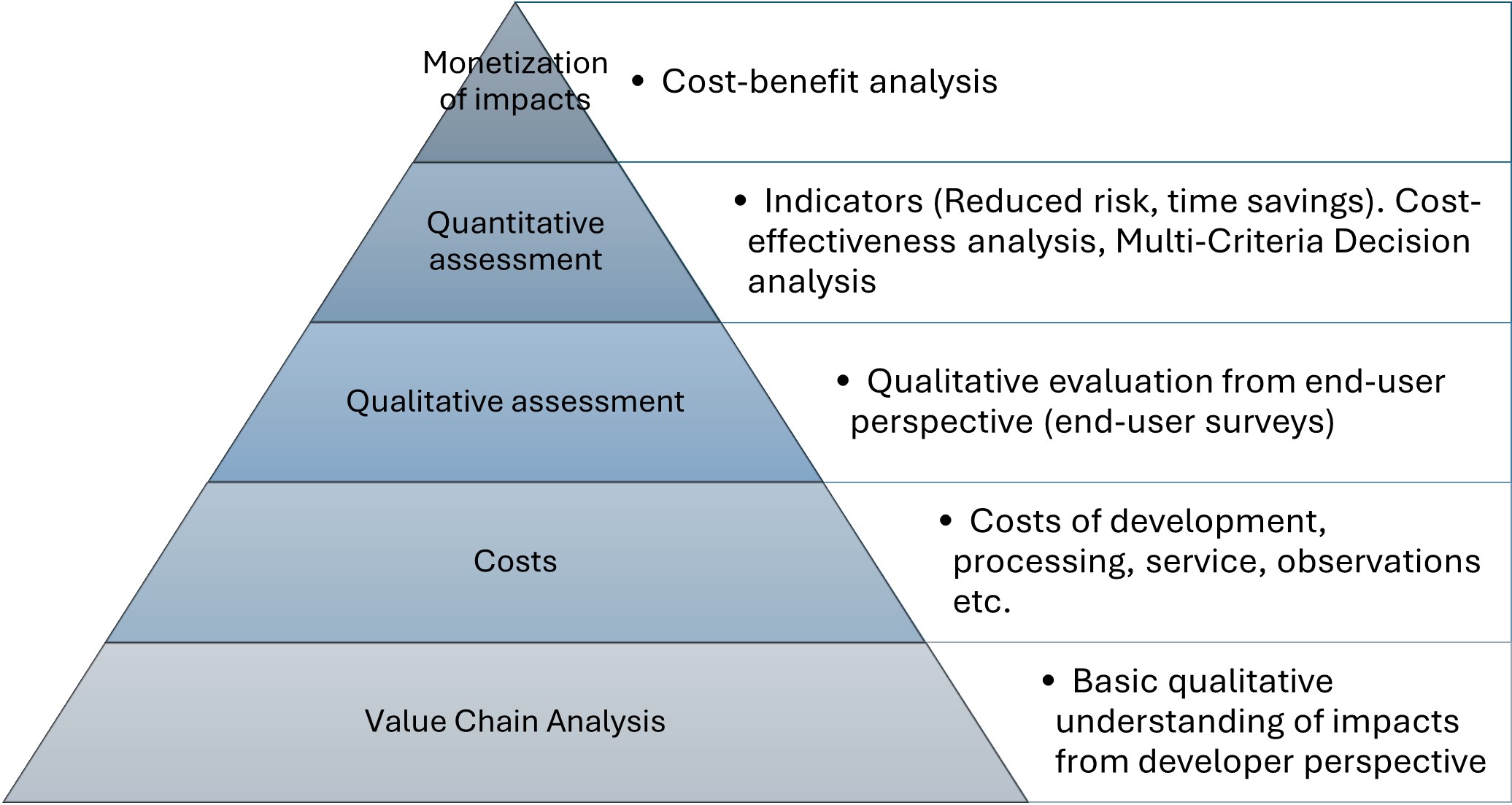Socioeconomic Benefits Of Arctic Passion – Linking To Geovalue
by Kaisa Juhanko | Published: 21-Aug-24 | Last updated: 21-Aug-24 | Tags : Arctic evaluation GEO services value | category: NEWS
The Arctic PASSION project has been pioneering efforts to enhance Earth Observation services for the Arctic, aiming to provide and preserve critical data that can inform sustainable development and policy decisions. The project is designed to strengthen Arctic Observing Systems and showcase the project’s developments for example via an Arctic Window which provides access to eight innovative, user-driven Arctic services, which allow visualization and access to data that cater to important Arctic information needs. These services constitute part of the project's core observing system elements. Through these services, Arctic PASSION aims to deliver actionable information and preserve knowledge that can help Arctic communities, industries, and policymakers address the unique challenges posed by climate change and environmental shifts in the region.
As researchers continue to develop and refine their services for the Arctic, the project focuses on assessing their potential impacts. The impact of the eight Arctic services hinges on understanding their socioeconomic benefits and value. A key component of this work involved conducting value chain analysis surveys to identify and evaluate the economic and other social benefits of the services. The survey is essential in understanding the full scope of the socioeconomic benefits that the services offer to various stakeholders, including local communities, industries, and policymakers and thus it was conducted with all of the project’s service developers. With few of the most advanced services, end-user surveys were also conducted to collect feedback to find out the different usages and benefits of the information that the service provides.

Figure 1: Evaluation hierarchy for Arctic PASSION services
Through these efforts, the project is not only assessing the current impact of the services but also aiming to pave the way for future scalability, sustainability and evaluation. To better understand where value is created and how it can be evaluated and monetized, the project is creating a Guidebook for the evaluation of observation services. The picture below illustrates this approach and the hierarchy of evaluations in the economic context. This is also where the connection to GEOValue becomes relevant. GEOValue is an interdisciplinary collective under GEO (Group on Earth Observation) that brings together experts from diverse fields, including natural sciences, social sciences, computer sciences, engineering, economics, policy, and decision-making. The GEOValue community is dedicated to understanding and quantifying the socioeconomic benefits and impacts of Earth Observation data on both individual and societal decisions and one of the its core missions is to develop a robust framework for analyzing these benefits.
Sharing the knowledge and results with the broader community through academic publications, presentations, workshops, and participation in international symposiums is relevant part of the work in Arctic PASSION and thus some of the Arctic PASSION services were already showcased at the Arctic GEOSS exhibition booth at the GEO Week 2023 in South Africa. Arctic PASSION will also participate in the upcoming EuroGEO event in Poland this October. The next GEO Week is going to be held in spring 2025, and Arctic PASSION is planning to organize a session about the socioeconomic benefits of the pilot services developed in the project. These events provide a platform for sharing insights, refining methodologies, and fostering international dialogue on the socioeconomic benefits of Earth Observation data. The outcomes of these interactions are not only valuable for the Arctic PASSION project but also contribute to the global understanding of how Earth Observation data can be leveraged to address pressing environmental and societal challenges.

Kaisa is the author working on the socioeconomic benefit analysis of the services
